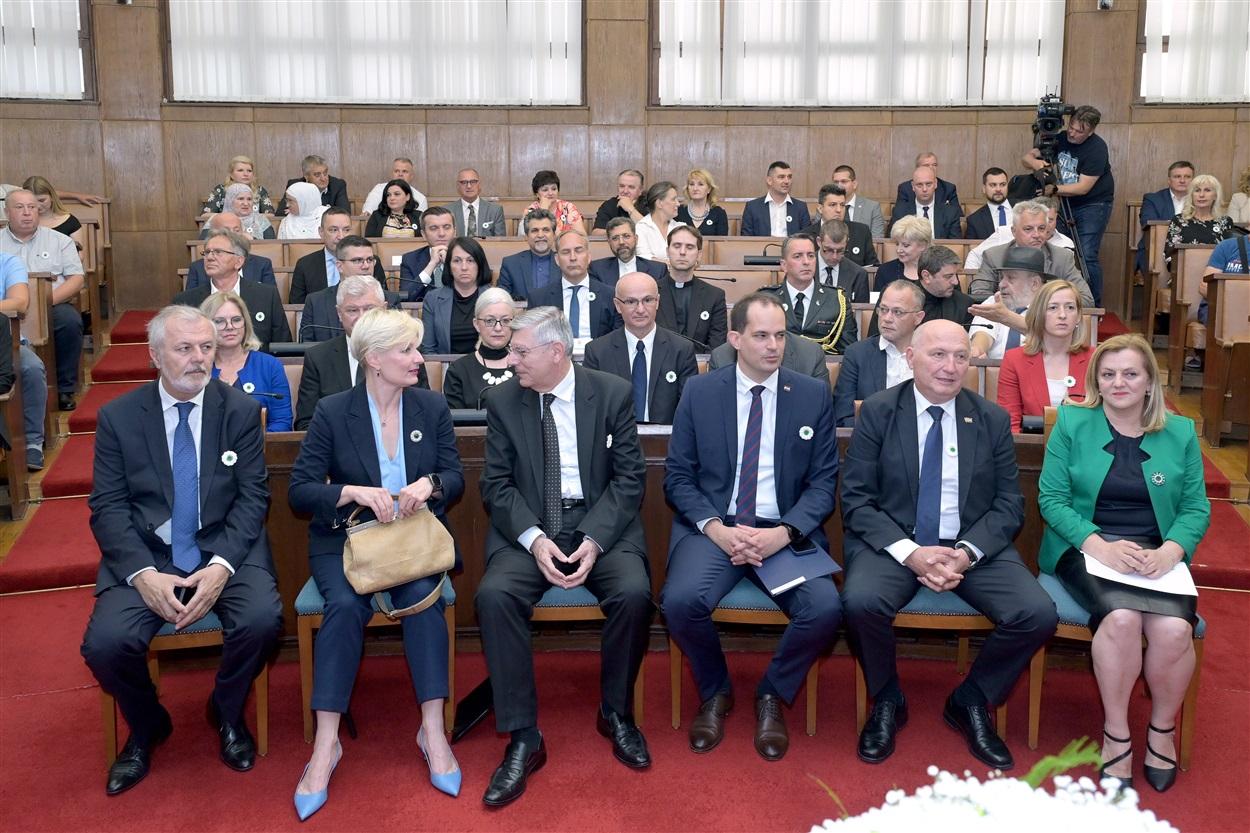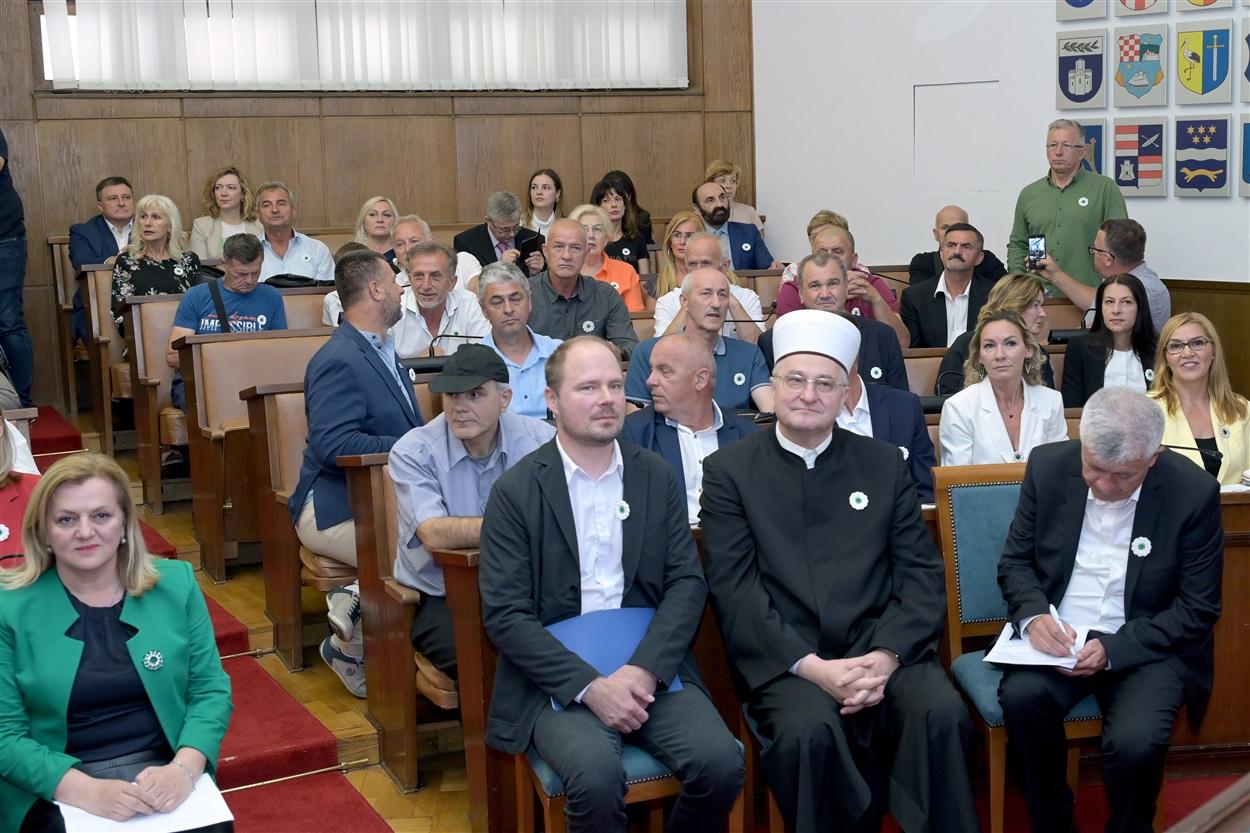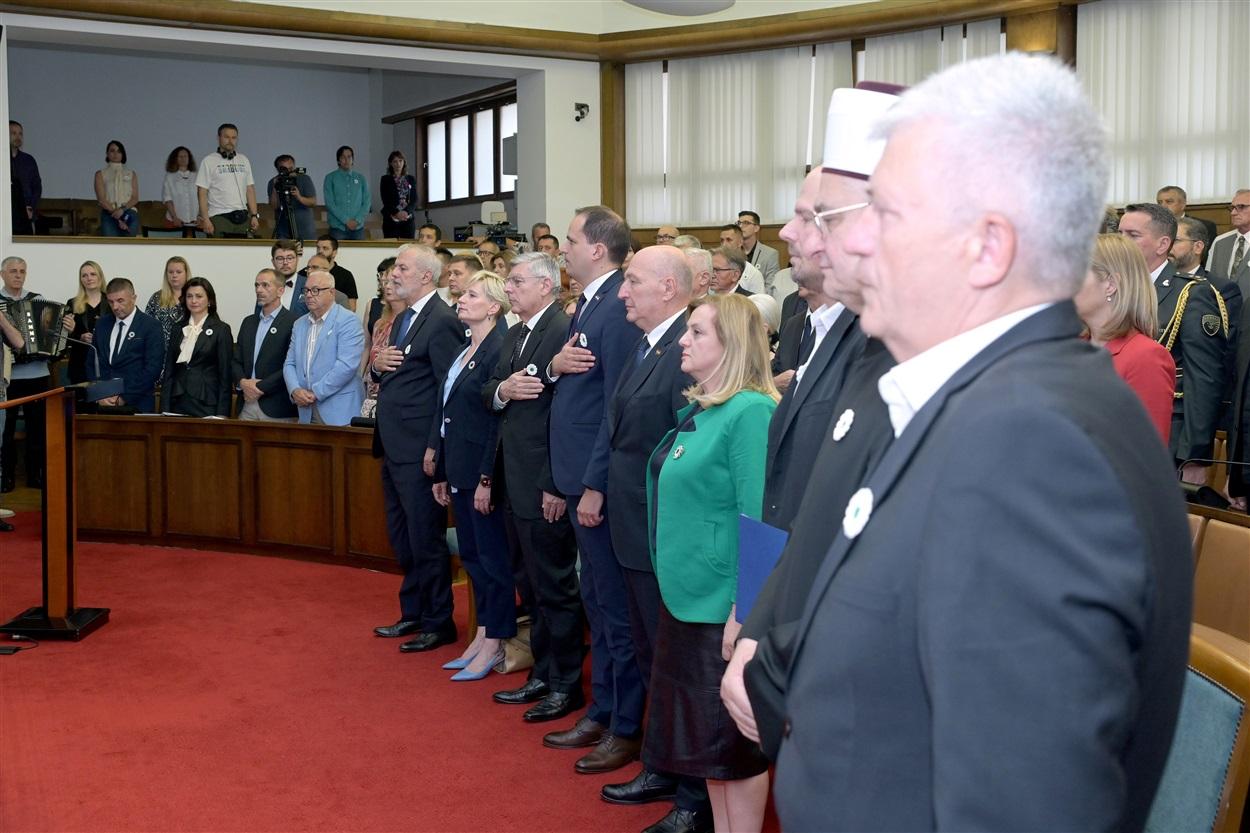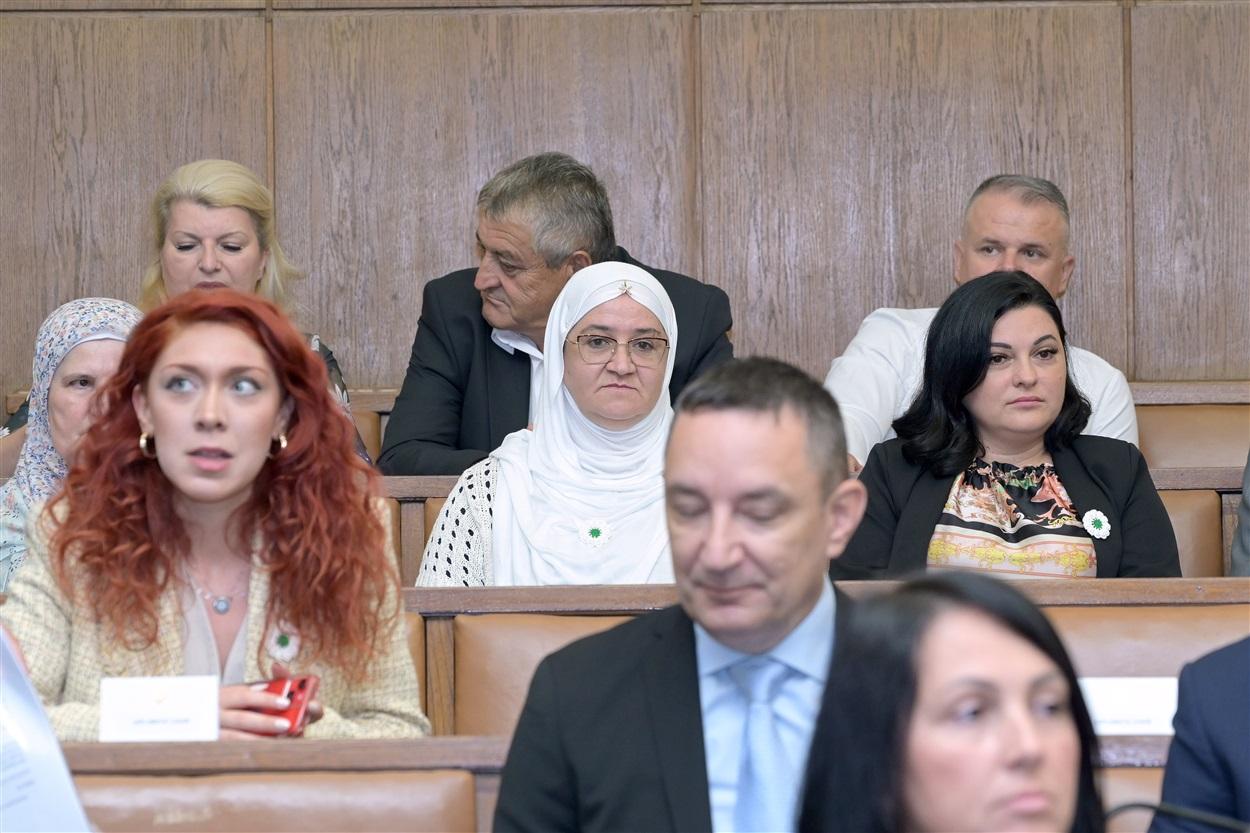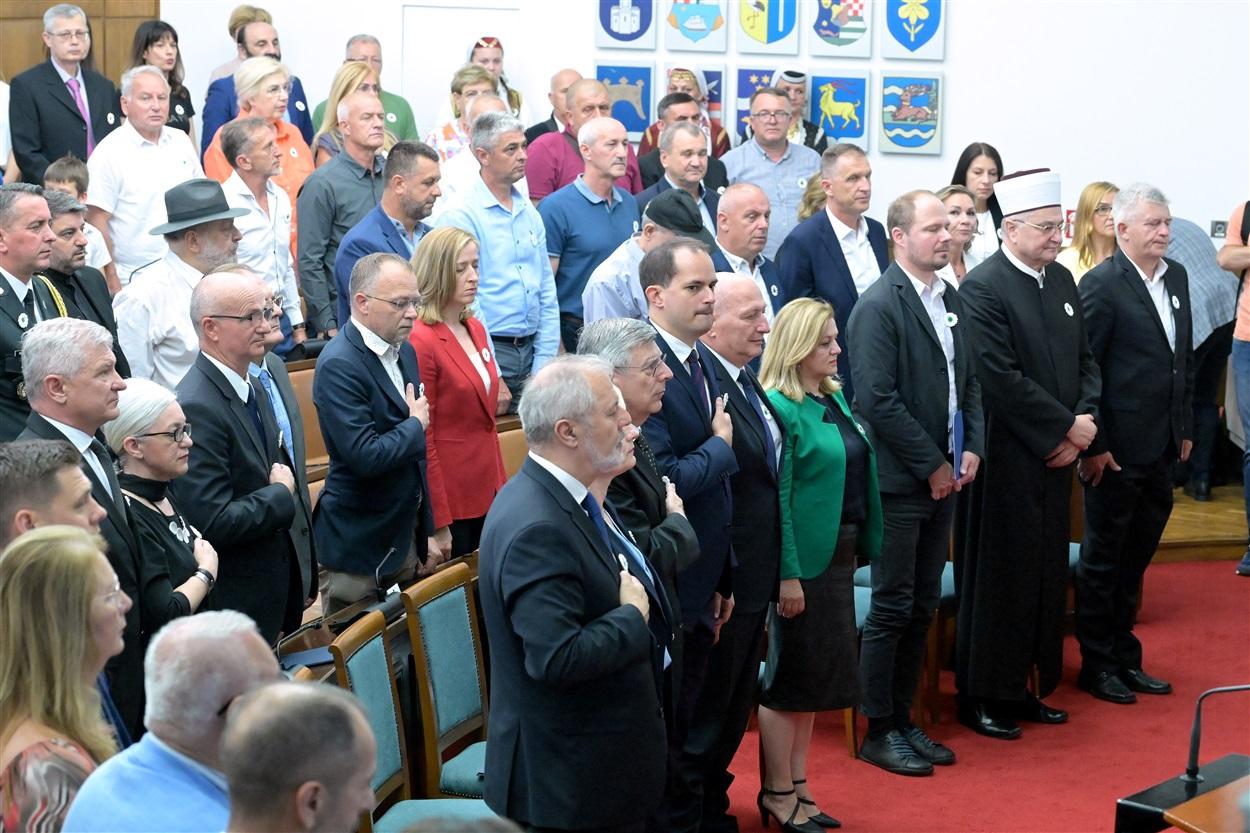
Zagreb - A memorial ceremony was held in the Croatian Parliament on Thursday to commemorate Srebrenica Genocide Remembrance Day, with members of Parliament, senior government and judicial officials and religious dignitaries attending it.
"Srebrenica teaches us a strong history lesson, that hatred and extremism are a sure way to a tragedy, that a peaceful and progressive society can only be built on the values of co-existence, tolerance and acceptance of differences," said MP Emina Lekaj Prljaskaj from the parliamentary group representing ethnic minorities.
The Croatian Parliament has commemorated one of the worst atrocities committed on European soil after the Second World War since 2009, when it declared 11 July Srebrenica Genocide Remembrance Day.
About 8,300 Bosniaks, mainly men and boys, were killed after Bosnian Serb forces under General Ratko Mladić overran the UN-protected enclave of Srebrenica, eastern Bosnia and Herzegovina 28 years ago. Two years ago, an appeals chamber of the UN war crimes tribunal in The Hague upheld the sentence of life imprisonment for Mladić.
But this did not end the prosecution of war crimes, Justice and Administration Minister Ivan Malenica said. "After decades of trials, the families of victims were given at least partial satisfaction. In the case of Mladić, the wheels of justice turned slowly, but exceedingly fine. There can be no just society without punishing criminals and taking responsibility for its criminal past," he added.
Although the Hague tribunal classified the Srebrenica atrocity as an act of genocide, it continues to be largely denied, said the head of the association of Bosniak organisations in Croatia, Kadro Kulašin, considering this to be a great failure in facing the past.
"Once a war criminal, always a war criminal, regardless of their ethnicity. One convicted war criminal has said he does not regret what he's done and claims he would do it again. These are cruel things and we must not be quiet about them," Kulašin said, alluding to wartime Bosnian Croat official Dario Kordić.
The Srebrenica genocide is particularly painful because it was committed by the victims' neighbours, colleagues and schoolmates, Kulašin said.
Deputy Speaker of Parliament Željko Reiner said: "People lost their lives in the most brutal ways just because they were Bosniaks. Even more painful is the fact that all that happened before the eyes of the civilised world and the international community."
Nearly 30 years after the war in Bosnia and Herzegovina, there is another war being fought in Europe following the Russian invasion of Ukraine, he recalled.
"Today we, too, are part of the international community which we have referred to. Let us put scoring cheap political points aside and dedicate ourselves to the common fight for democracy and peace," Reiner said.
Melita Mulić, the representative of the President of the Republic, warned that words spoken from podiums or on social networks should not be downplayed because every war begins with words.
"After every war nations say 'never again', but these words are often easily reneged on, as we can see in Ukraine and in many other hotbeds of war across the world," Mulić said.
